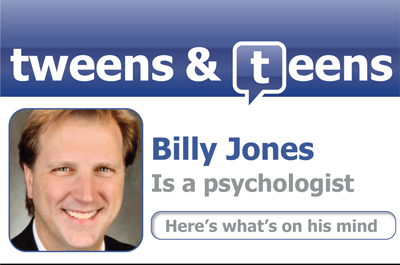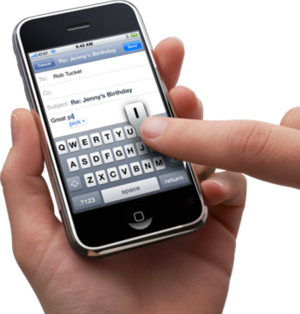
“We can never solve a significant problem from the same level of thinking we were at when we created the problem” ~ Albert Einstein
Welcome to the Halloween edition of Tweens and Teens. I’ve been asked to talk about drug experimentation from your Tweens and Teens…a very scary topic, indeed.
Let’s start off with a definition of experimentation. Webster defines this term as: A tentative procedure or policy.
So…by definition, experimentation is temporary, which is much different than drug usage, which implies an ongoing event. A bit less scary now, but I still would prefer my kids KEEP OUT! “Just say No” does not work when peer pressure is screaming “Just say Yes”.
I imagine many of you may have experimented with drugs when you were younger. Don’t try to hide those skeletons in your closet (nice Halloween tie in, don’t you think?). I’ll tell you that I did. It was just what I thought it would be and, as such, I was finished…I got the thrill out of my system and never did it again.
 Here’s my history: I smoked marijuana on two occasions, took an upper on one occasion, and sniffed laughing gas on four or five occasions.
Here’s my history: I smoked marijuana on two occasions, took an upper on one occasion, and sniffed laughing gas on four or five occasions.
These happened between the ages of 17 and 19 years of age and each time, I was with friends. Think about that last sentence. EVERY time this happened, I was with my friends. And they provided it.
As a parent, we want our children to be healthy and happy and know that everything is wonderful. But that doesn’t always happen; however, there are some things we can do to help them. I’ve got four rules that may help you be more successful in your attempts to keep your child from even experimenting with drugs.
Rule #1 is: Make sure you know who your Tweens and Teens’ friends are. There were no cell phones back then, so nobody could call and check out who I was with all night. When asked, I told my parents what they needed to know and left certain other parts out.
My Tween has friends that he goes out with but not without adult supervision. Also, we make sure we know his friends’ parents. We invite the kids over for a sleepover and check them out. If his friends act weird, goofy, or do not follow our house rules to our approval, then we assume that their behaviors will be greatly enhanced when they’re alone. So, Rule #2 is: Make sure you know how their friends will act and behave when in the company of adults. This allows you to guesstimate how they’ll act outside adult supervision. And don’t forget to take the time to get to know their parents.
My parents never really asked where I was going, so I would just say, “I’m going to the bowling alley or skating rink (the BIG 80’s hangouts) and will be home soon. And we did go there…for a while. Then, we were off to wherever we wanted. If asked, “How was the bowling alley?”, then I could honestly tell them. Also, if they ever went there to ask people they knew (my father was a bowler so he went to the bowling alley all the time), then people at the bowling alley could verify I was actually there. So, Rule #3 is: Make sure you know where your Tweens and Teens really are.
 Rule #4 easily follows the last one: Make sure you know what your kids are doing. Yes, this means you need to bug them. Yes, this means texting them to check on them. Please note… if you call them constantly, then they’ll likely become embarrassed and that’s not the purpose of this Rule. Texting is soooo common that their friends won’t think anything about it when it happens.
Rule #4 easily follows the last one: Make sure you know what your kids are doing. Yes, this means you need to bug them. Yes, this means texting them to check on them. Please note… if you call them constantly, then they’ll likely become embarrassed and that’s not the purpose of this Rule. Texting is soooo common that their friends won’t think anything about it when it happens.
Though experimentation is not something any of us want our kids to even try, we certainly don’t want them to use alcohol or drugs on a regular basis. If they are, then this is no longer experimentation. It’s substance usage. Usage is typically done to either (1) self-medicate, or (2) gain a sense of involvement. IF, they are consistently doing it for pleasure, then they’ve moved to substance abuse.
Let’s talk about those two issues as we close. First, self-medication: People tend to self-medicate when they have internal or external circumstances they’re unable to handle in a healthy manner, such as exercising or problem-solving. This often leads to depression and/or  anxiety. When these two factors come into play, the tween or teen will often increase the amount or frequency of their substance abuse to help offset the anxiety and/or depression.
anxiety. When these two factors come into play, the tween or teen will often increase the amount or frequency of their substance abuse to help offset the anxiety and/or depression.
Secondly, let’s talk about using substances to gain a sense of involvement. This is a situation where giving in to peer pressure is extremely likely as this may allow the person to feel a part of a group. I’ve mentioned in several previous articles that Tweens and Teens need to feel involved with something and, if it isn’t their family, then it will be their friends, including friends that we don’t particularly like.
If either of these two issues come into play, then it may be time to seek professional help, from either an outpatient standpoint (e.g., going to a trained counselor) or an inpatient standpoint (e.g., being admitted into a hospital for treatment).
At times, it may be possible to work through this yourself; however, this is more likely a time when trying to handle things on your own will not work. After all, if you had the answer, then you wouldn’t be in the position you’re in now. Also, if your child had the answer, then they wouldn’t be in the position they’re in now. So, I encourage any of you in this situation to put aside any pride you may have and seek professional help. If the counselor feels as though you’re able to handle this situation on your own, then he or she will tell you. Putting your family back together is now your number one priority.
So, follow the 4 Rules I’ve given (Know Who, How, Where, and What your Tweens and Teens are doing) and, if those don’t work, then think about whether treatment from a professional would help your family.
Until next month,
billy
Dr. Jones is a child psychologist with Mercy Health System of Northwest Arkansas. Click here to read previous articles on Tweens & Teens. Got a question for Dr. Jones? Send it to us (we won’t use your name) and we may feature it in an upcoming installment of Tweens & Teens.


